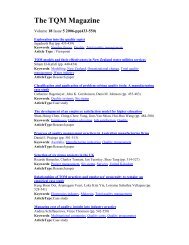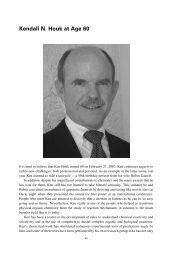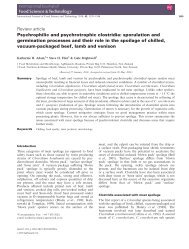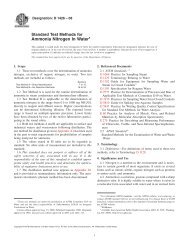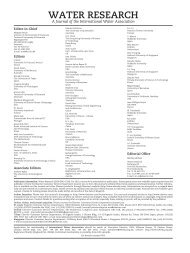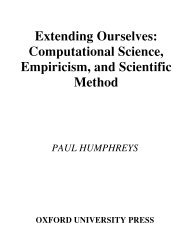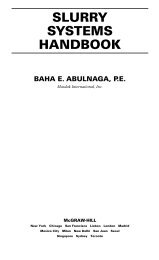Bad Astronomy: Misconceptions and Misuses Revealed, from ...
Bad Astronomy: Misconceptions and Misuses Revealed, from ...
Bad Astronomy: Misconceptions and Misuses Revealed, from ...
Create successful ePaper yourself
Turn your PDF publications into a flip-book with our unique Google optimized e-Paper software.
230 BEAM ME UP<br />
accepted. That, in turn, means that the committee of astronomers<br />
that chooses who gets to use Hubble can be very picky. If your<br />
project can be done <strong>from</strong> the ground, you get rejected. If your<br />
project takes up too much time with only a marginal return in science<br />
learned, you get rejected. If you ask to do something that’s<br />
already been done, you get rejected. If you ask to do something<br />
someone else is asking to do, <strong>and</strong> the other proposal is better, you<br />
get rejected.<br />
Get the picture? It also takes days or weeks to prepare a proposal,<br />
time that you could spend working on other projects or trying<br />
to get other grants. You might use up a lot of precious time<br />
preparing your proposal only to have it roundly rejected.<br />
But suppose you are lucky <strong>and</strong> your idea is accepted. Congratulations!<br />
Now you move to the next step. You have to painstakingly<br />
detail every single thing you want Hubble to do, including the<br />
initial pointing to your target, every exposure, every filter, every little<br />
bump <strong>and</strong> wiggle needed to get the observations you want. This<br />
detailing may also take several days or weeks, using complicated<br />
software guaranteed to give you a headache.<br />
But finally you finish <strong>and</strong> submit the final proposal. Congratulations<br />
again!<br />
Now you wait.<br />
It may take up to a year or so to make those observations after<br />
the scheduling goes through. When you do, you are faced with many<br />
gigabytes of data, <strong>and</strong> you need a lot of software <strong>and</strong> experience<br />
to analyze them. It may take months or even years to figure everything<br />
out. With luck <strong>and</strong> perseverance, you may actually get a<br />
paper in the astronomical journals out of all this.<br />
Now, think for a moment about all that work. All that analysis<br />
before <strong>and</strong> after the observations costs time <strong>and</strong> money, neither<br />
of which an astronomer has in copious amounts. For someone on<br />
a research grant time is money, <strong>and</strong> grants are very difficult to<br />
come by. Applying for HST time is a big gamble. You hope to get<br />
accepted, <strong>and</strong> then you hope the data are good enough to further<br />
your research, so you can get even more grants. I don’t mean to<br />
put so much emphasis on money as a means unto itself, but without<br />
it, it’s pretty hard to do research. In a sense, your future career<br />
as a scientist depends on your ability to get good data; you’re



